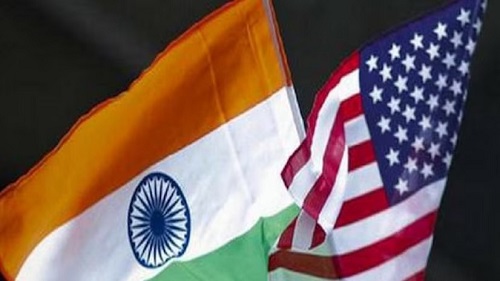The recent developments surrounding Sri Lanka’s bankruptcy and its implications for Indo-US relations demand a nuanced understanding of regional dynamics and strategic alignments. Against the backdrop of Sri Lanka’s economic turmoil, intertwined with geopolitical shifts in the Indo-Pacific, the Indo-US strategy vis-à-vis Sri Lanka merits careful scrutiny.
The declaration by Indian High Commissioner Santosh Jha that the security of India and Sri Lanka is “interlinked and intertwined” underscores the depth of bilateral engagement in defense and strategic affairs. Amidst the fallout of Sri Lanka’s bankruptcy, India’s role in augmenting Sri Lanka’s defense capabilities assumes heightened significance. The provision of defense equipment, training programs, and collaborative initiatives underscores a shared interest in maritime security and regional stability.
Simultaneously, the US engagement with Sri Lanka, exemplified by the planned transfer of the decommissioned USCGC Decisive (WMEC 629) to the Sri Lankan Navy, reflects broader Indo-Pacific strategic imperatives. The transfer underscores US efforts to bolster Sri Lanka’s maritime capabilities within the context of the Indo-Pacific strategy. However, challenges associated with maintaining aging naval assets amidst fiscal constraints merit critical consideration.
The evolving Indo-US approach towards Sri Lanka occurs against the backdrop of broader regional dynamics. While both countries share converging interests in maritime security and stability, differences persist in their respective responses to global crises, such as the Russia-Ukraine conflict. This nuanced interplay underscores the complexity of Indo-US relations and their implications for Sri Lanka’s strategic positioning.
Economic Dimensions and Development Initiatives
Beyond defense cooperation, economic dimensions shape the Indo-US engagement with Sri Lanka. Notably, US investments in Sri Lanka’s infrastructure, including the development of the West Container Terminal (WCT), signify a strategic convergence of economic interests. The US International Development Finance Corporation’s (DFC) involvement underscores a concerted effort to enhance Sri Lanka’s maritime infrastructure, aligning with broader Indo-Pacific economic initiatives.
The Indo-US engagement with Sri Lanka amid its economic challenges carries implications for India’s economic development. Enhanced maritime connectivity and infrastructure development in Sri Lanka, facilitated by US investments, can bolster regional trade dynamics and benefit India’s strategic interests. Improved port facilities and transportation networks could enhance India’s access to global markets, particularly in the Indo-Pacific region.
Moreover, stability and security in Sri Lanka contribute to a conducive environment for economic activities and regional integration. As Sri Lanka navigates its economic recovery, Indo-US collaboration can contribute to sustainable economic growth in the broader Indo-Pacific context, aligning with India’s ambitions for regional connectivity and economic development.
However, Sri Lanka’s bankruptcy poses significant challenges to sustained cooperation with Indo-US partners. The high costs associated with maintaining decommissioned vessels and broader fiscal constraints necessitate pragmatic policy choices. Sri Lanka’s leadership faces a delicate balancing act, navigating strategic partnerships amidst domestic economic exigencies and evolving regional dynamics.
In conclusion, the evolving Indo-US strategic synergy in the context of Sri Lanka’s bankruptcy underscores a multifaceted engagement encompassing defense, economic, and geopolitical dimensions. Sri Lanka’s trajectory within this framework hinges on pragmatic policy choices that leverage strategic partnerships while addressing pressing economic challenges. As Indo-US relations continue to evolve, Sri Lanka’s strategic positioning within the Indo-Pacific landscape assumes heightened importance, shaping regional security and stability in the years ahead.
The evolving narrative of Indo-US relations vis-à-vis Sri Lanka’s bankruptcy underscores the imperative of informed decision-making and strategic foresight amidst complex geopolitical realities. Sri Lanka’s engagement with its Indo-US partners embodies a delicate balance of interests, reflecting broader regional dynamics and the imperatives of sustainable security and economic development.
Best Regards,
Dr. (H) Avi Verma
Publisher, IndoUS Tribune
